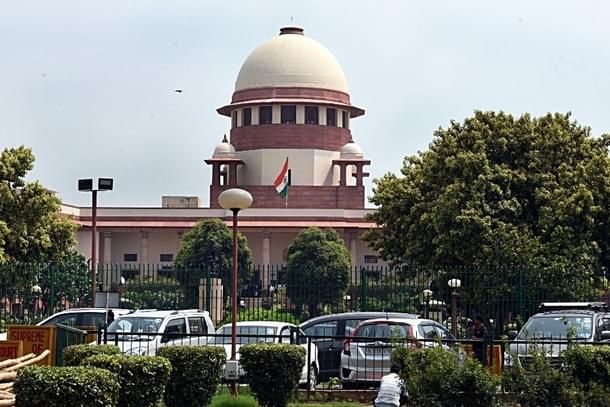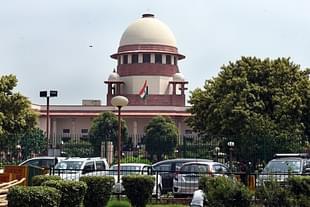Insta
Palghar Sadhus' Lynching: SC Seeks Uddhav Government's Reply On Pleas For CBI, NIA Probes In The Case
IANS
Jun 11, 2020, 01:20 PM | Updated 01:20 PM IST
Save & read from anywhere!
Bookmark stories for easy access on any device or the Swarajya app.


The Supreme Court on Thursday (11 June) agreed to hear a plea seeking a CBI probe into the lynching of Sadhus in Palghar, and sought response from Maharashtra government.
A bench comprising Justices Ashok Bhushan, M R Shah and V Ramasubramanian also issued notice on a separate plea seeking National Investigating Agency (NIA) probe to ensure evidence in the matter is not destroyed. The apex court has scheduled further hearing on the matter in the second week of July.
A group of petitioners, all Juna Akhara priests and some of the relatives of the victims told the top court that they have no faith in Maharashtra government or the police. The petitioners also said that they do not expect a fair and just investigation into the case, as they suspected the government and police's involvement in it.
"There is a reasonable apprehension of bias, if Respondent No. 2 (Maharashtra police) proceeds with the investigation. It is judicially acknowledged that right to fair and just investigation is guaranteed under Article 21 of the Constitution. Therefore, the petitioners have approached this court inter alia, seeking transfer of investigation of the matter to the Central Bureau of Investigation", argued the petitioners.
Maharashtra government counsel opposed the petitions and contended before the top court that similar matters are pending before the Bombay High Court too. The counsel for the petitioner seeking NIA probe argued "our apprehension is that the evidence will disappear." Counsel appearing for the June Akhara argued "witnesses are committing suicide. We have reasons to believe that investigation is not taking its course."
The plea contended that in front of the police officials, the mob started beating sadhus, Chikne Maharaj Kalpavrukshagiri (70) and Sushilgiri Maharaj Kalpavrukshagir (35). The plea contended that the Sadhus were brutally and mercilessly beaten to death in the presence and possible complicity of the Maharashtra police and the state government.
The petitioners counsel argued that the totality of the circumstances raises some serious (unanswered) questions about the state government and the police ability to independently and impartially investigate and inquire into the incident considering the potential of their involvement in the gruesome lynching that took place on 16 April.
(This story has been published from a wire agency feed without modifications to the text. Only the headline has been changed.)





